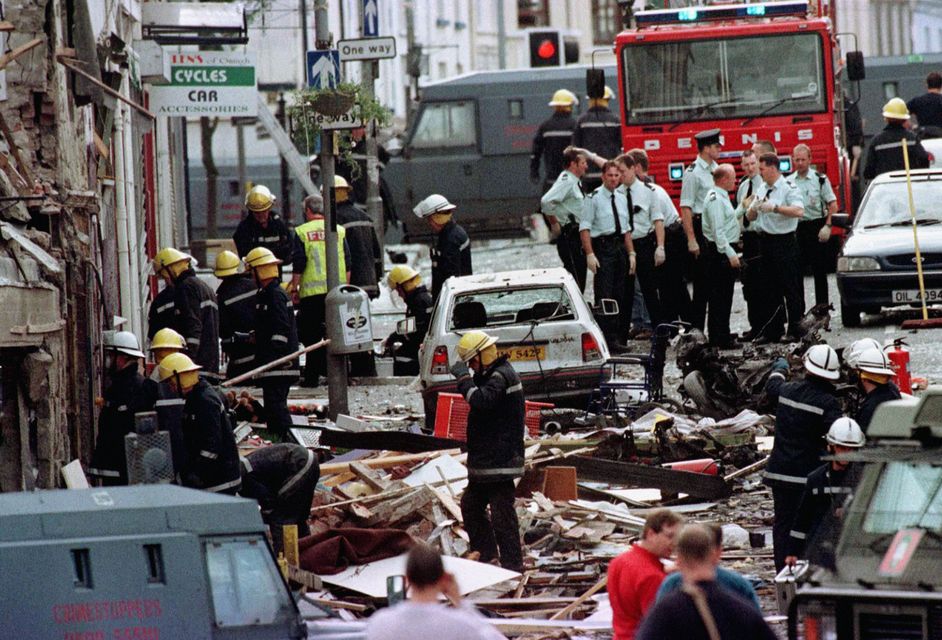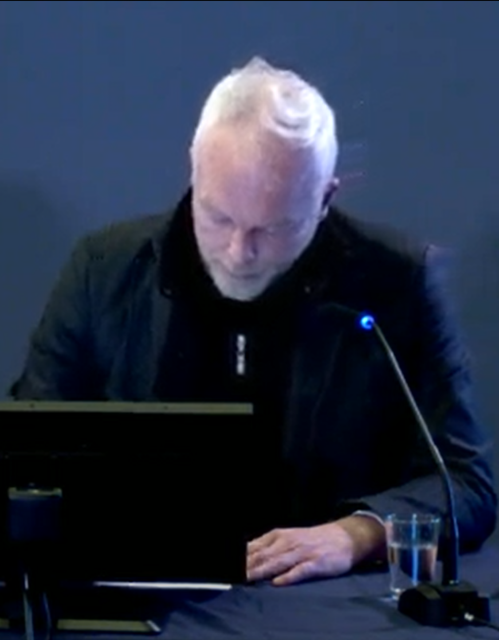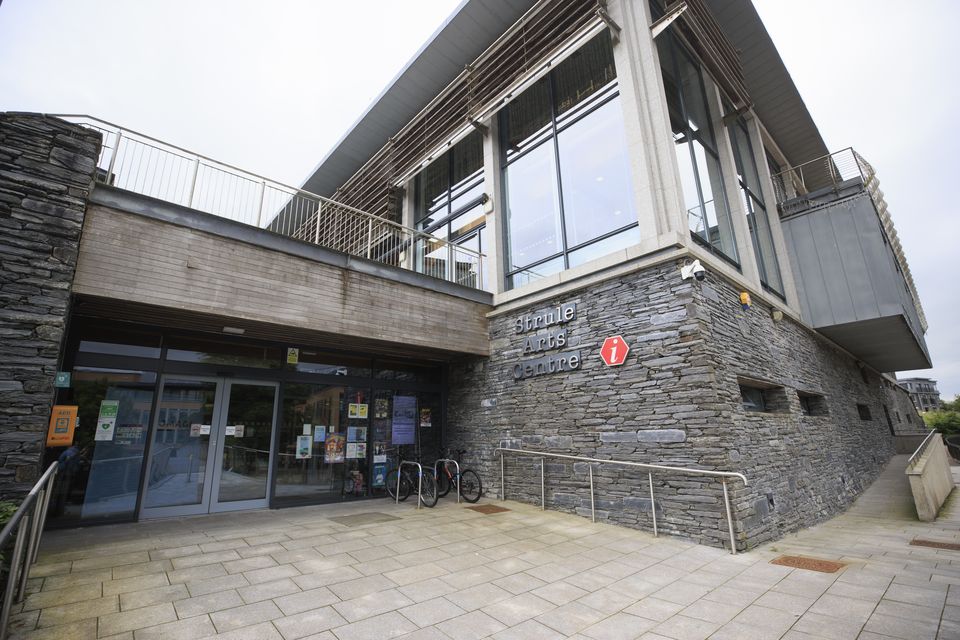A survivor of the Omagh bombing has told an inquiry how the power of the explosion left a crater in the middle of the street, with severely injured victims inside it.
David McSwiggan told the Omagh Bombing Inquiry that he had repeatedly returned to the scene of devastation immediately after the blast to search for his missing friends.
The inquiry at the Strule Arts Centre in the Co Tyrone town is continuing to hear personal statements from witnesses and people who were injured in the Real IRA bombing in August 1998.
The public inquiry was set up by the Government to examine whether the explosion, which killed 29 people, including the mother of unborn twins, could have been prevented by the UK authorities.
Mr McSwiggan told the inquiry the bomb had occurred one week after his 20th birthday. He had been due to start university in England the following month.
He had gone to Omagh town centre with his friends David and Pauline because there was to be a break-dancing show later that day.
He told the inquiry how a bomb alert had resulted in police moving hundreds of people away from the town’s courthouse, unknowingly moving them closer to where the bomb was planted inside a car.
The scene following the Real IRA bombing of Omagh in 1998 (Paul McErlane/PA)
He said: “Our chat was sceptical of the bomb scare being real as the Troubles usually happened in other places.
“Our wee town, the backwater that it was, did not merit to be a target, especially as the Troubles were supposed to be over.
“Suddenly, an immense force seemed to bring the bricks of the buildings tumbling, disintegrating around us.
“A dark, dusty, smoky blackness just seemed to envelope everything. Then heat and fire.”
Mr McSwiggan said the street where the bomb had exploded had been “completely transformed”.
He said: “There were lifeless, injured and trapped people everywhere.
“Buildings collapsing onto the street.
“There was something burning fiercely near to where we had been standing moments earlier.
“Further down the street there was a crater, a large hole in the road.”
David McSwiggan told the inquiry he had been battling the effects of trauma ever since the bombing (Omagh Bombing Inquiry/PA)
Mr McSwiggan said there were people in the crater, including one person with severe injuries who had been left naked by the force of the explosion, and another who had severe stomach lacerations.
“The hole in the street was filling up with water,” he said.
“The pipes had burst and water was mixing with people’s blood and running in rivulets down the street.
“I just couldn’t believe what I was seeing.”
Mr McSwiggan said he could smell and taste “melted plastic, burnt hair and burnt flesh”.
He told the inquiry that his instinct was to get to safety but that he repeatedly went back into the smoke to search for his friends.
He said: “I couldn’t see anyone I knew among the crowd of bleeding, blackened and singed survivors.
“I repeated the cycle of going in and retreating from the scene of the explosion searching for my friends until I couldn’t take it any more.”
Mr McSwiggan said he was eventually able to phone his mother, who was a nurse, to tell her about the bomb and that she and her colleagues would be needed at the hospital.
He said: “I knew that nothing would ever be the same for us again, she too would have to see the depraved obscenity I had witnessed inflicted on our neighbours.
“It is awful to be the person to bring news like this to anyone.”
Mr McSwiggan said he was able to make it to his grandmother’s house in the town.
The inquiry at the Strule Arts Centre in the Co Tyrone town is continuing to hear personal statements from witnesses and people who were injured in the bombing (Liam McBurney/PA)
He said: “I still hadn’t found my friends and the thought of what had happened to them was overwhelming me.”
He was treated in hospital the next day for shrapnel cuts, minor burns and a perforated eardrum.
He said his father found out that his friends were alive, but that Pauline was seriously injured.
He told the inquiry that his mother returned from hospital later that weekend and said she had treated someone she knew who “hadn’t a tooth left in their head”.
He said his mother never spoke again about what she had experienced.
Mr McSwiggan told the inquiry that he had battled the effects of trauma for decades.
He said: “The idea that you could be in your local town on a Saturday afternoon and everyone was rounded up and killed in front of you, and nobody really knows why, or how, or who did it, and you are supposed to just go on with your life and never mention it again; attempting to rationalise that just never allowed me to sit right with the world.”
He added: “There have been very few days in the years since which have been unperturbed by intrusive thoughts and imagery from that day.”
The inquiry later heard a written statement from Lisa McGonigle, who described traumatic scenes at the hospital in Omagh in the aftermath of the explosion.
Ms McGonigle was part of a community festival taking place in the town and went to the hospital because she wanted to know the children taking part were safe.
She said: “I remember seeing a lady going in carrying her shopping and she was wearing no clothes because they had been blown off her.
“I remember seeing a woman by the door of the hospital. She had Father Bradley with her, the only reason I knew she was a woman was that I could see the straps of her bra.
“I think that Father Bradley was giving her the last rites.
“A woman had her hand held up with blood pulsating out of her fingers. The blood was dripping also at the bottom of her body, I know now that she had internal bleeding.
“Her husband was beside her, his trousers had been blown off him.
Ms McGonigle said she went to outpatients and saw a girl she knew who could not hear and had suffered a traumatic leg injury.
“When I went back to the main hospital I was handed an injured baby,” she said.
“I turned around to see patients being carried in on doors which were being used as makeshift stretchers.
“I think all of them, unfortunately, were dead.
“I then said ‘I can’t do this’ and I handed the baby to someone.”
She added: “I still to this day get triggered when I go into hospitals.”


